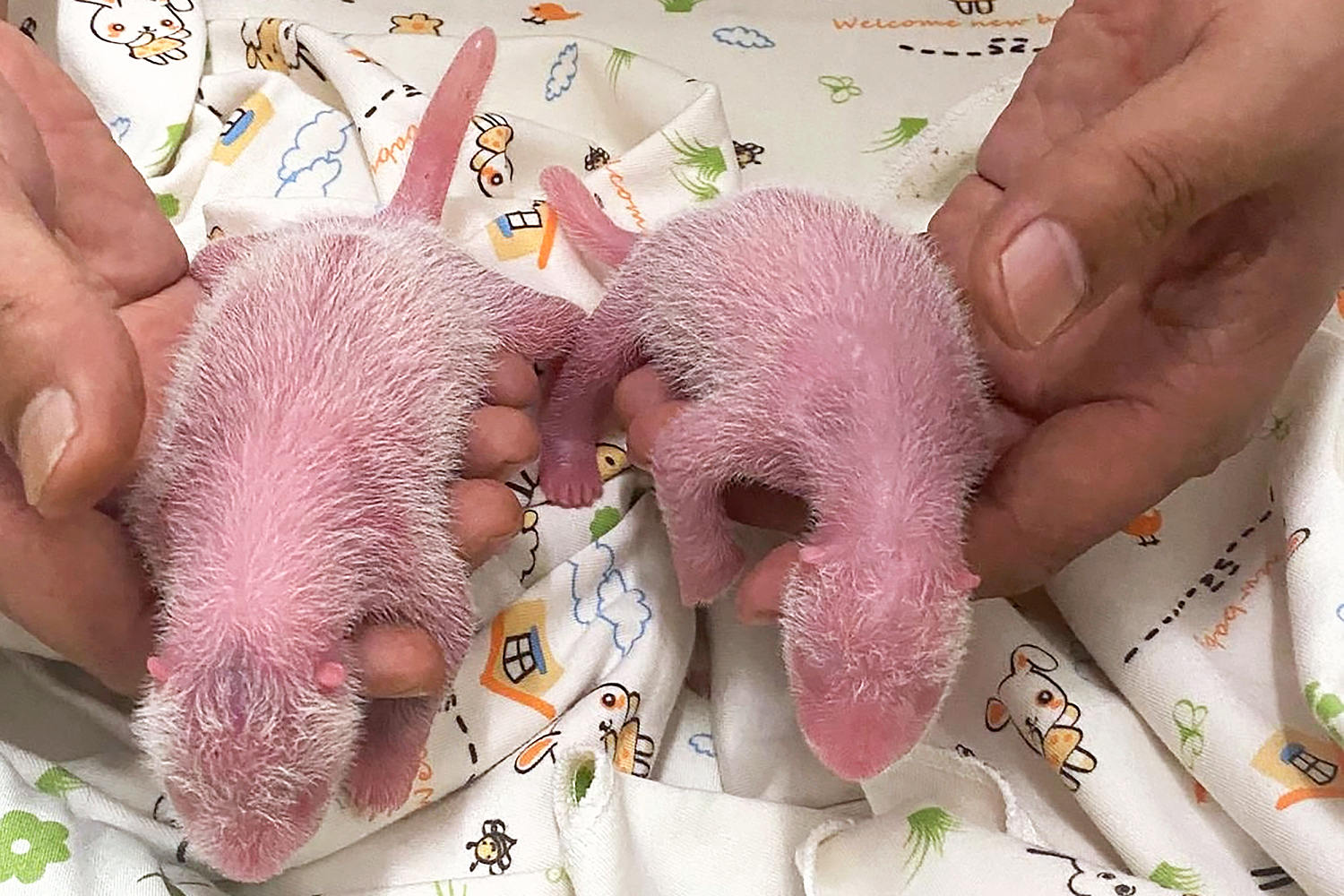World’s oldest first-time panda mom gives birth to twins

HONG KONG — A giant panda has given birth to Hong Kong’s first set of twin cubs, officials said in a surprise announcement, making her the world’s oldest first-time panda mother.
The panda, Ying Ying, gave birth to one male and one female cub on Thursday, according to Ocean Park, the theme park where she and her partner Le Le have lived since 2007. The twins were born one day before Ying Ying turned 19, the equivalent of 57 in human years.
“This birth is a true rarity, especially considering Ying Ying is the oldest giant panda on record to have successfully given birth for the first time,” Paulo Pong, chairman of Ocean Park Corporation, said in a statement late Thursday.
The female cub was born first weighing 122 grams (4.3 ounces), followed by the male cub more than an hour later at 112 grams (3.95 oz.). The park said the cubs were under 24-hour intensive care and would not make their public debut for a few months.
The cubs are “currently very fragile and need time to stabilize,” the park said, “especially the female cub who has a lower body temperature, weaker cries and lower food intake.”
Ying Ying, whose pregnancy was only confirmed on Sunday and had not been made public, spent more than five hours in labor.
“As a first-time mother, Ying Ying was understandably nervous throughout the process,” the park statement said. “She spent much of her time lying on the ground and twisting.”
Giant pandas are notoriously bad at reproducing, especially as they get older, and panda pregnancies are difficult to detect. But panda breeding programs have seen increasing success, and the bears have in recent years been upgraded to “vulnerable” from “endangered.”
Ocean Park said Ying Ying had started showing symptoms of pregnancy, including decreased appetite, increased rest time and changes in hormonal levels, in late July.
The panda cubs were conceived naturally when Ying Ying and Le Le successfully mated at the park in March. They had previously failed to conceive despite multiple attempts at natural mating as well as artificial insemination.
In a statement announcing the birth, Hong Kong’s top leader, John Lee, expressed gratitude to the Chinese central government for sending Ying Ying and Le Le to Hong Kong, saying it “demonstrates its care and support for our city.”
In July, Lee announced that Beijing would send another pair of pandas to Hong Kong, which are expected to arrive this year. The Chinese territory’s first set of pandas, An An and Jia Jia, arrived in 1999. Jia Jia, the world’s oldest-ever panda to have lived in captivity, died in 2016 at age 38, while An An died in 2022 at age 35.
Giant pandas are endemic to China and considered a national symbol, and Beijing has recently begun to revive its longtime “panda diplomacy” as a tool to promote friendly relations with the United States and other countries.
The first pair of giant pandas in two decades arrived in the U.S. in June, traveling to San Diego from southwestern China in a journey that was shrouded in secrecy as enthusiasm from fans can verge on obsession. Two more are expected to arrive at the National Zoo in Washington this year.
A panda at the Berlin Zoo, Meng Meng, is also pregnant with twins, the zoo said this week. The cubs, her second set of twins, are expected to be born by the end of the month.




